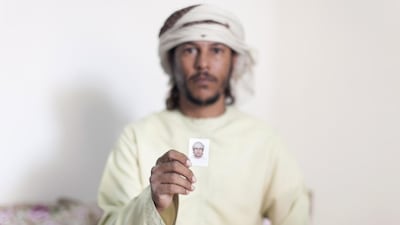AJMAN // The family of an Emirati fishing boat captain missing at sea for six days have not slept or eaten since being told he had been knocked overboard.
Mohammed Saif Al Suwaidi fell into the sea after a large ship collided with his fishing boat, causing it to break in half on Saturday morning.
Six Indian crewmen on his boat were rescued by an Emirati fishing vessel that was near by when the incident occurred about 80 nautical miles off the UAE coast.
Mr Al Suwaidi, 32, who cannot swim, was working as a "noukhada" (Arabic for lead fisherman or captain) because he had no job, said his brother, Ali Saif Al Suwaidi, 35.
“All of us can’t sleep or eat. We make food for lunch and sit at the dining table looking at it. Our bodies sleep but our minds still work and think throughout the day and night,” he said.
Ali, who has worked as a fishing boat captain for five years and taught Mohammed everything he knows, said he was at sea when he received the call from the coastguard about the accident. He immediately returned to shore, but was so worried that he could not bring himself to tell his family.
“My brother went to sea on Wednesday evening and I went on Thursday. We usually stay there for five days. When the accident happened on Saturday I went home. My family asked me why I was back, so I told them my boat had been disrupted,” Ali said. “The next day I told my sisters and they thought I was joking with them.
“On the third day I told my mother because I didn’t want her to know from television or newspapers. Then my wife’s brother heard. They started crying and shouting and didn’t believe it.
“All of them have lost their minds and I couldn’t tell my father, who is 100 years old, because he is too old and sick. Until today he doesn’t know, but my mother feels that my brother is still alive.”
The six crewmen were taken to Sheikh Khalifa Hospital in Ajman. Five were only slightly injured and left the same day after receiving treatment, while the other sailor underwent surgery for a broken foot. He was due to be discharged in a day or two, the hospital said.
Ali said that although he was braced for bad news, a part of him remained hopeful that his brother, who has been married for three years and whose wife is in the second month of pregnancy, would return home.
For now Ali is resigned to waiting for more information from the UAE coastguard, which is working with neighbouring countries in the search.
He said that if he had his own boat he would join the search for his brother.
“Even if they just found his body, we at least can psychologically rest because it is better than not knowing if he is alive or dead,” he said.
roueiti@thenational.ae

